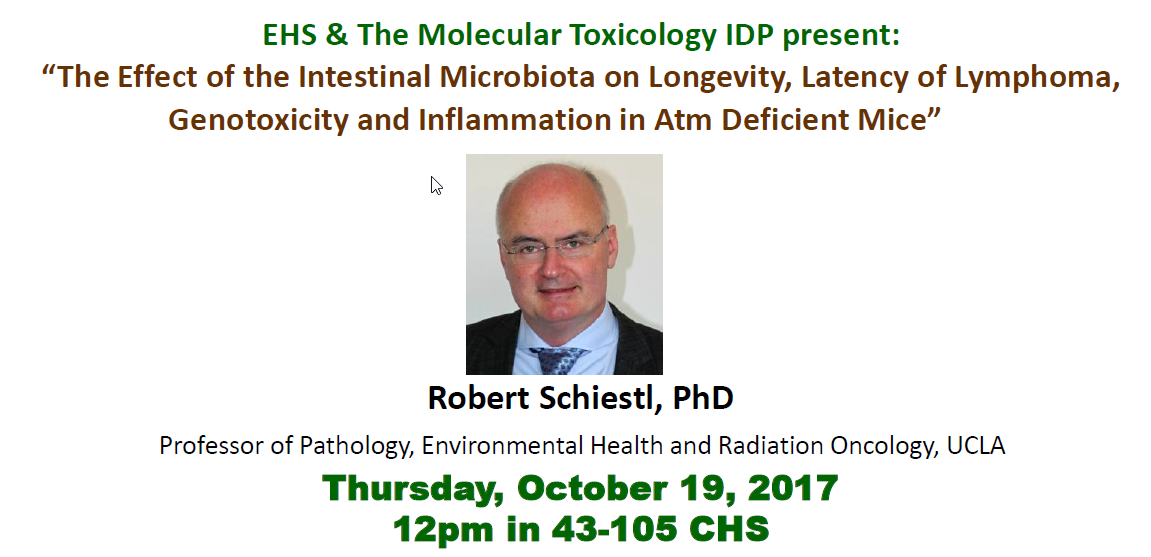October 18, 2017
10:00pm – 11:00pm
43-105 CHS (Center for Health Sciences)
About the lecture: Intestinal microbiota plays a role in nutrient metabolism, modulation of the immune system, arthritis, obesity and intestinal inflammation. When our lab moved from Harvard to UCLA we found a huge difference in genetic instability and longevity in Atm deficient mice. When we changed the intestinal microbiota back to conventional microbiota we could reproduce the phenotype at Harvard. We tested Atm deficient mice for genotoxicity, genetic instability, DNA damage, inflammation markers, cancer latency and longevity and high throughput sequencing of the intestinal microbiota. Isogenic mice from different housing facilities showed a four fold difference in life expectancy, a 4.5 fold difference in genetic instability and DNA damage. The onset of lymphomas was significantly 2.5 fold different. Metabolomics from the feces and urine showed bacterial metabolites with anticancer activity in the health beneficial microbiota. We sequenced the microbiota of both facilities and found Lactobacillus johnsonii 456 as dominant bacterial strain in the health beneficial microbiota.
Just this bacterium by itself reduced genotoxicity, reduced inflammation and reduced levels of cytotoxic T, NK and CD3 cells in the liver and blood. We also found similar differences in Trp53 deficient and even in wildtype mice. The underlying mechanisms is probably due to inflammation promotion or suppression mediated by the intestinal microbiota. The understanding of this effect may lead to a breakthrough in the understanding of the causes of carcinogenesis, which might lead to prevention of AT, a currently incurable progressive disease and possibly other cancer-prone DNA repair deficient diseases or even wildtype mice and people. We are developing Lactobacillus johnsonii 456 into a probiotic.
About the speaker: Robert H. Schiestl has obtained his PhD from the University of Vienna at the age of 23 years. He was postdoctoral fellow at Edmonton, Alberta, Rochester, NY, and Chapel Hill, NC before being professor at Harvard at the age of 31 where he stayed for 10 years. Since 17 years he isprofessor at UCLA with 200 publications, 12 patents and 1 startup company.
Supported by the UCLA NIEHS Training Grant in Molecular Toxicology T32ES015457 & The National Center for Advancing Translational Sciences, UCLA CTSI Grant UL1TR00124
For more information please contact Rebecca Greenberg at rgreenberg@ph.ucla.edu or at (310) 206-1619

